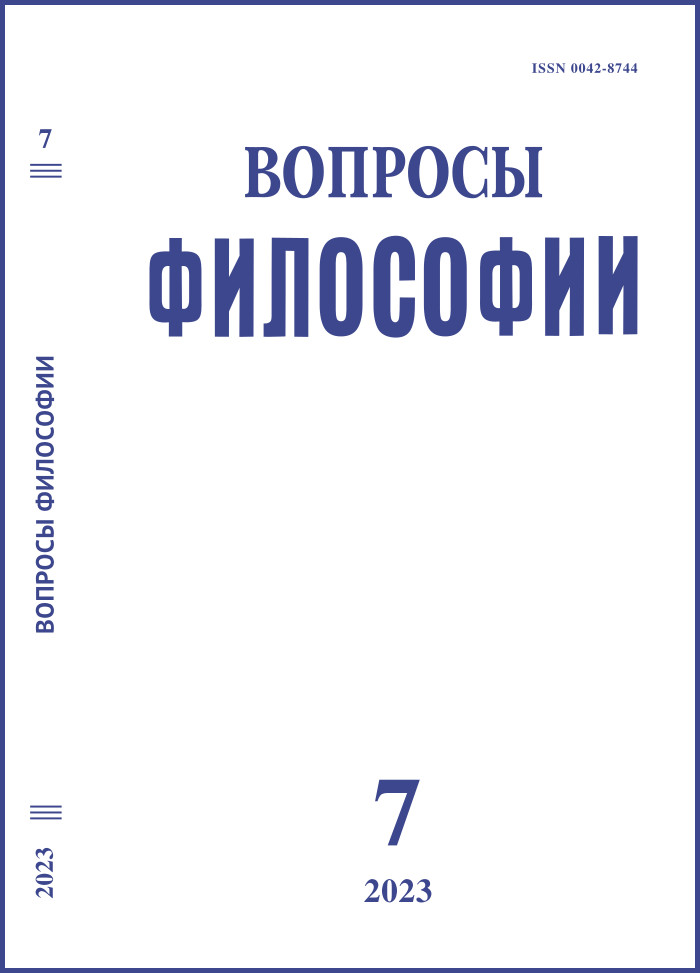Культурфилософский горизонт трудов П.П. Гайденко
DOI:
https://doi.org/10.21146/0042-8744-2023-7-13-18Ключевые слова:
Пиама Гайденко, онтология, рациональность, природа, бытие.Аннотация
Исследования П.П. Гайденко признаются одним из важнейших оснований историко-философской мысли в России. Ни один из современных отечественных философов или историков философии не может сказать, что труды Гайденко не оказали на него какого-либо влияния. Начинающим свой путь в философии статьи и книги Гайденко служат ключом и надежным средством для подступа к философским проблемам. Для тех, кто с помощью Гайденко уже обрел первые ориентиры в философии, стиль ее письма – ясный, логичный и лаконичный – становится образцом академического ductus’а. Для остальных же исследователей сами тексты П.П. Гайденко создают пространство для разговора с компетентным собеседником. В этой статье я обращаю внимание на особенности историко-философского подхода П.П. Гайденко, среди которых самыми главными представляются: 1) важность культурного контекста, который, по мнению Гайденко, является основанием любого духовного действия человека; 2) свойственный Гайденко интерес к онтологической проблематике и тем философам, для которых эти вопросы были первоочередными; 3) серьезное влияние хайдеггеровской «истории бытия» на становление концепции Гайденко о типах рациональности, последовательно сменяющих друг друга. Прояснение этих особенностей позволит понять, почему в повороте к античному типу мышления, ориентированному на созерцание physis, Гайденко видит способ выйти из научного и мировоззренческого кризиса современности.

